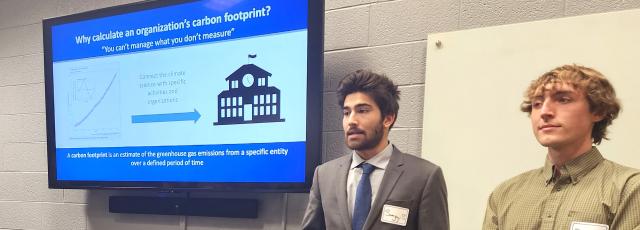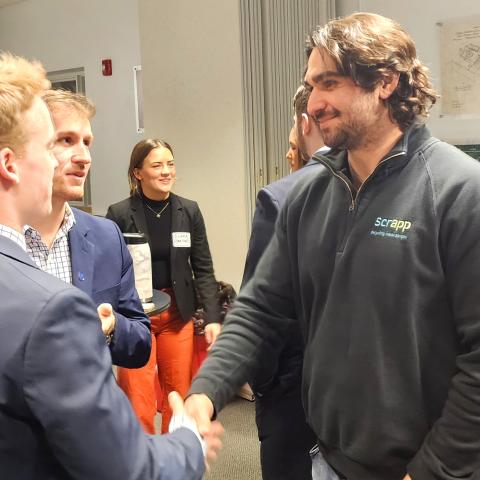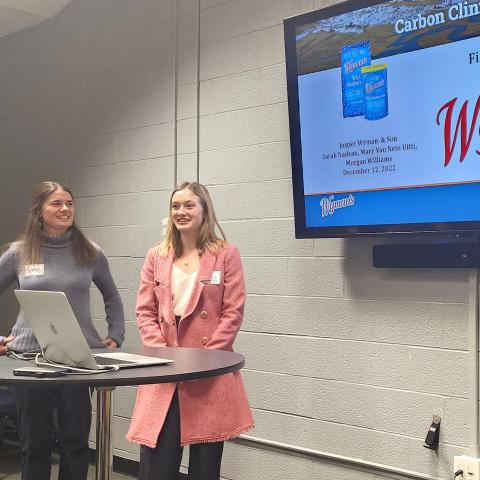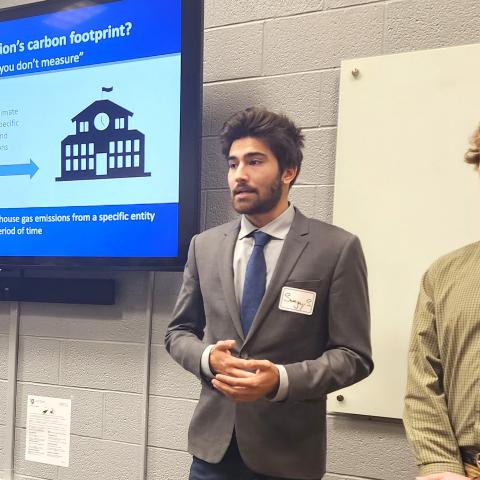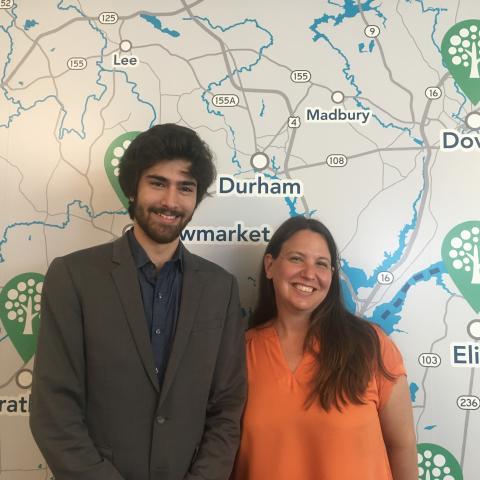Grant Year
2024, 2023, 2022Project Leader/s
Project Description
A year and a half in, with encouragement and continuing support from the Henry David Thoreau Foundation, the University of New Hampshire’s groundbreaking Carbon Clinic is a living laboratory for F. Scott Fitzgerald’s oft-quoted observation that “The test of a first-rate intelligence is the ability to hold two opposing ideas in mind at the same time and still retain the ability to function. One should, for example, be able to see that things are hopeless yet be determined to make them otherwise.”
The Carbon Clinic grew out of its founders’ conviction that there was an urgent need to train students in the practical skills required to respond to our global climate crisis. Professors Fiona Wilson and Allison Leach and program director Jenn Andrews fervently believe that action, not just talk, is what is required, and they conceived of the Carbon Clinic as a kind of boots-on-the-ground immersive apprenticeship in which students would learn the science and technology of greenhouse gas measurement and reporting by addressing real world problems for real clients.
Their program has demonstrated stunning proof-of-concept. “We just hosted our third end-of-semester showcase,” Andrews reports, where student teams present their work to clients and community and campus stakeholders. “We were so inspired by both the fantastic presentations and the strong commitments to sustainability from their clients.” The program’s five clients this semester included a major outdoors retailer (Orvis), a sector-leading fruit grower and distributor (Wymans of Maine), an architectural practice, a marketing firm, and a foundation. “In their reflections, all the clients spoke to how the students’ work would be used directly in achieving their internal climate impact reduction goals. In addition, several noted that they are part of broader networks whose members are not sure where to start on greenhouse gas accounting, and that they intend to share their experience with colleagues. This speaks to the vital ripple effects of the program.”
At the same time, as Andrews acknowledges, “The need for climate action has never been more urgent. We are already experiencing extreme weather right here in the U.S., and the effects are only expected to intensify as greenhouse gas emissions continue.”
Andrews’ observations reveal something essential for anyone working in the climate action space, to echo Fitzgerald: the ability to recognize that things are hopeless yet remain determined to make them better. The Carbon Clinic leverages the UNH Sustainability Institute’s 20+ years of expertise and investment in climate leadership. It uses the Sustainability Indicator Management and Analysis Platform (SIMAP), an online platform launched by UNH in 2017 and used by more than 500 universities and other organizations worldwide, to understand, communicate, and manage their carbon and nitrogen footprints. The Carbon Clinic is designed to extend the established and successful B Impact Clinic model (also funded by the Henry David Thoreau Foundation) to the pursuit of greenhouse gas emissions reductions.
More fundamentally, the Clinic provides students who yearn to make an impact on their future world with the expertise to do so. “This generation of students,” observes Dr. Leach, “are hugely motivated to be part of the solution to climate change and are hungry for opportunities to be involved in learning the tangible skills to be change makers. They are looking for a new kind of education, one that is more hands-on and that has visible near-term impact. The Carbon Clinic responds to this need.”
Students are the heart of the Carbon Clinic. After training in the science of GHG emissions measurement and reporting, including hands-on practice using UNH’s SIMAP tool, students work in small teams that are matched with a company, NGO, or municipality. The students undertake relationship and project management, aggregate the data, and analyze. Their analysis allows them to highlight the most material sources of GHG emissions for their client organization and develop feasible recommendations for reducing GHGs.
Moving forward, the Clinic is actively and enthusiastically grappling with the challenges of success. How can they reach and train more students and organizations? How can they maintain excellence and expertise as they scale the program up? “This is becoming more important as we have legislative reporting requirements,” Andrews says. “We need to continue to ensure we are providing all our clients with accurate and actionable results and guidance. How do we continue to grow without losing the hands-on quality that has made the program successful and valuable to students and clients? Are there other ways to enhance our impact?”
What enables the Clinic’s stewards to solve Fitzgerald’s paradox is their students’ enthusiasm and their clients’ commitment to breaking trail: both measuring and reducing their greenhouse gas emissions, taking leadership even before it’s legally mandated. “By focusing on what we can do,” says Andrews, “training, leadership, and action. And by being in community: tuning into the lessons learned and problems solved that are being shared by the growing cohort of organizations and budding experts we are cultivating through the Clinic.” The work being done through the Carbon Clinic is unquestionably demonstrating that hope for the future can comfortably coexist with a sober assessment of the present.
